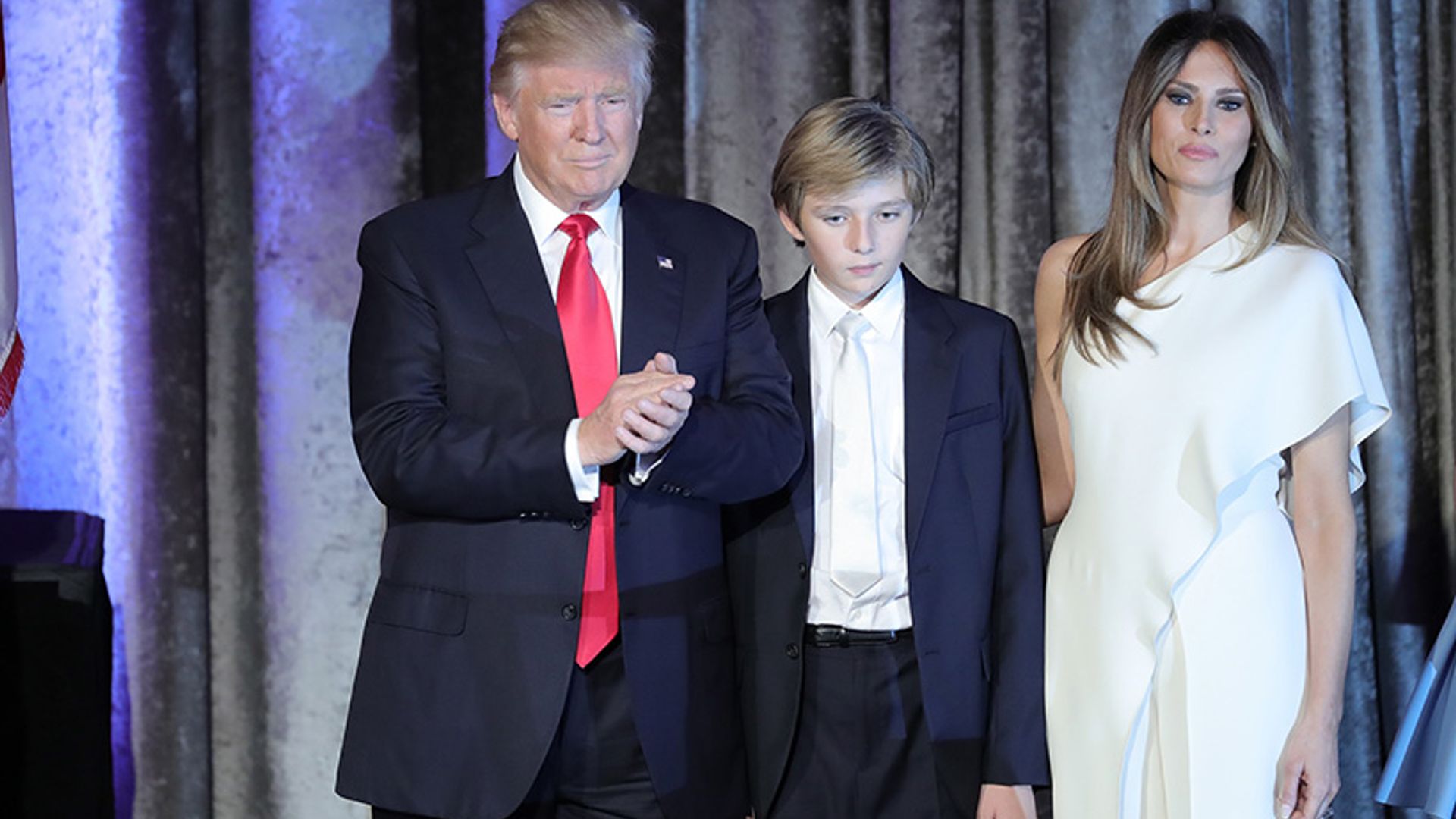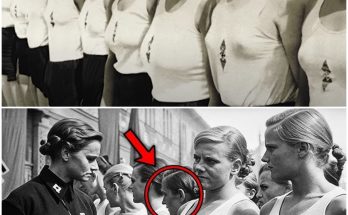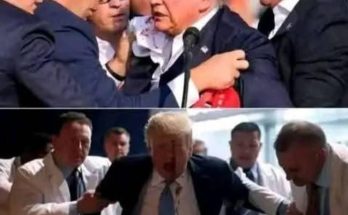When Melania Trump married Donald Trump, she imagined a life of elegance, influence, and public admiration—perhaps even stepping naturally into the role of a future First Lady. What she didn’t expect was a clause in a prenuptial agreement that would redefine her future:
no children allowed.
Trump, already a father of four grown children, saw no reason to start over. His life was full—businesses, politics, fame, and family already stretching across generations. He valued Melania’s beauty, her poise, her presence. But children? That wasn’t part of the plan.
And yet, destiny has a strange way of ignoring signatures on paper.
A Pregnancy That Changed Everything

When Melania discovered she was pregnant, she reportedly hesitated before telling her husband. Friends close to her at the time recall her mixed emotions—fear of breaking the agreement, but also a quiet, unshakable joy.
Trump’s reaction was not anger, but disbelief. He later admitted in interviews that the pregnancy “just happened.”
Barron’s birth in March 2006 was, as one aide described it, “a surprise that turned into an empire’s new chapter.”
At first, Trump was distant—absorbed in television appearances, business expansions, and, later, political ambitions. The new baby, small and quiet, was largely Melania’s world. She raised Barron herself, speaking to him in Slovenian, insisting he make his own bed, teaching him that discipline could coexist with privilege.
“She was both mother and mentor,” said one family acquaintance. “Barron grew up in her shadow, not his father’s.”
The Mirror Moment
Years later, something shifted.
At a charity gala, Trump reportedly caught a glimpse of Barron standing beside Melania—tall, serious, and composed. The resemblance startled him.
The same confident tilt of the head.
The same narrowed eyes when thinking.
Even the same slight, knowing smirk.
It was like looking at a younger version of himself.
From that moment, Trump’s attitude changed. He began bringing Barron to more events—photo ops, rallies, even the
2016 campaign trail. Slowly, the boy once kept out of the spotlight became a quiet fixture beside him.
Observers noticed how Trump’s tone softened when mentioning his youngest son. “He’s a good kid. Smart. Very tall—very tall,” he often said, half-joking, half-proud.
But behind those quips was something deeper: recognition. In Barron, Trump saw continuity—a version of himself untouched by failure, unscarred by politics.
The Inauguration Moment

It was during the 2017 inauguration
that the world truly met Barron Trump.
Standing on the Capitol steps, he looked both awkward and composed—shoulders straight, eyes calm, every gesture mirroring his father’s confidence. Cameras caught him clapping, smiling faintly, occasionally glancing up at his father with quiet admiration.
Social media lit up, calling him “the poised son,” “the silent heir,” and “the calm in the storm.”
For Trump, that day became symbolic. Amid the noise, controversy, and chaos of his presidency, his youngest son stood as a serene presence—a reminder of legacy, of youth, of something untouchable by scandal.
Becoming the Favorite

As the years passed, Trump’s affection for Barron grew more open.
At rallies, he’d mention his height—“He’s six-seven now! Can you believe it?”—or his manners. In interviews, he described Barron as “very private, very smart, very cool.”
Meanwhile, the relationship with his older children—Ivanka, Don Jr., Eric, and Tiffany—remained close but businesslike. They were adults now, with their own ambitions and alliances. But Barron was different. He wasn’t competition. He was
continuation.
A former aide once put it simply:
“Trump sees in Barron what he wishes he’d been at that age—confident, unbreakable, born into victory.”
A Future Already Written
Now seventeen, Barron rarely appears in public. Yet every glimpse—whether a photograph beside Melania or a distant shot at Mar-a-Lago—draws attention. He carries himself with quiet grace, his posture echoing a man twice his age.
Melania still shields him from the media, ensuring he finishes school far from political chaos. But those who’ve seen father and son together describe their bond as both tender and unspoken.
When Trump calls Barron “his pride,” it’s not mere affection—it’s symbolism. In a world where every empire crumbles eventually, every leader looks for a legacy that endures.
Barron, once the child Trump didn’t plan to have, became the one thing he could never buy:
a reflection of himself that history might still forgive.
From Accident to Legacy
In the Trump story—a tale of ambition, wealth, and endless reinvention—Barron’s chapter feels almost poetic. Born against the odds, raised quietly, and loved fiercely once recognized, he stands as both accident and destiny.
Maybe that’s why Trump calls him not just his pride, but his “greatest achievement.”
Because for all the towers and titles, nothing has mirrored him more perfectly than the son he never expected.

